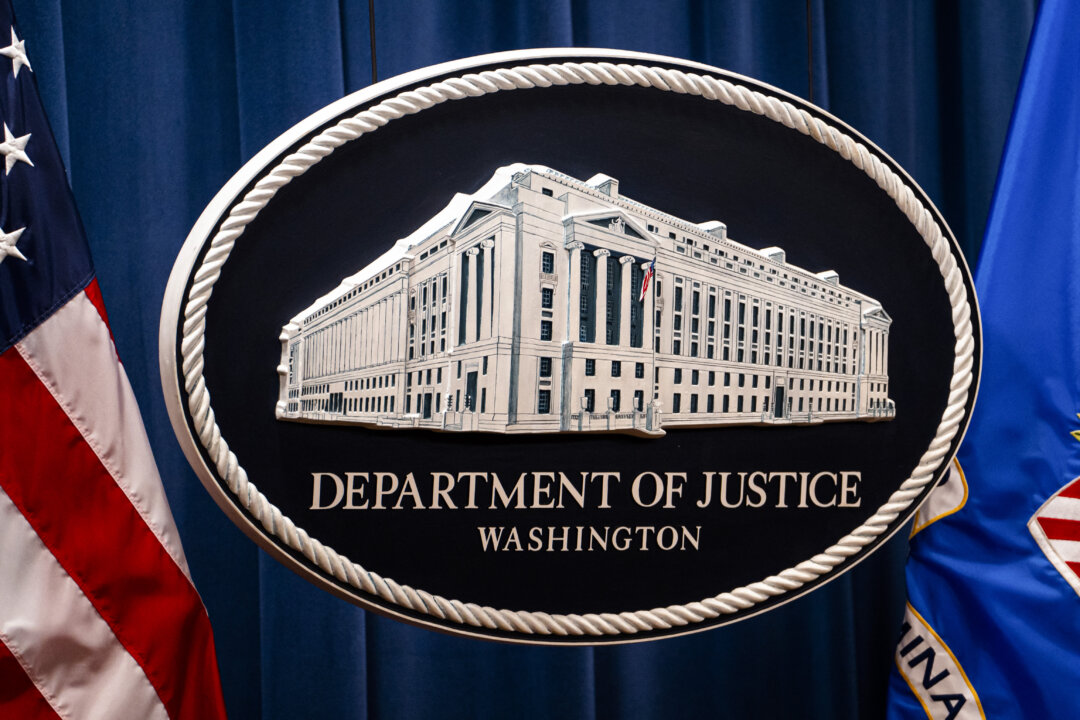The order seeks to ensure officers focus on fighting crime rather than ‘racial- and sex-based “equity” policies.’
President Donald Trump has ordered the Department of Justice to take steps toward bolstering law enforcement resources and ensuring officers don’t focus on equity policies.
“When local leaders demonize law enforcement and impose legal and political handcuffs that make aggressively enforcing the law impossible, crime thrives and innocent citizens and small business owners suffer,” Trump said in an executive order on April 28.
“My Administration will therefore: establish best practices at the State and local level for cities to unleash high-impact local police forces; protect and defend law enforcement officers wrongly accused and abused by State or local officials; and surge resources to officers in need.”
Part of his order targets “illegal race- and sex- based ‘equity’ policies” and directs the attorney general to “take all appropriate action to create a mechanism to provide legal resources and indemnification to law enforcement officers who unjustly incur expenses and liabilities for actions taken during the performance of their official duties to enforce the law.”
Trump’s order also seeks to boost law enforcement resources by directing the eventual provision of excess military and national security assets to assist authorities. Under the order, the attorney general is directed to maximize the use of federal resources for a variety of purposes, including increasing officers’ pay and benefits, promoting investment in prison security, and expanding access to training available to state and local law enforcement.
Another aspect of the order sought to hold state and local officials accountable for directing the obstruction of criminal law and unlawfully engaging in civil rights violations “under the guise of ‘diversity, equity, and inclusion’ initiatives.”
The presidential order came on the same day that Trump signed two others, including one focused on bringing jurisdictions with so-called sanctuary policies into compliance with federal law. In it, he accused some state and local officials of engaging in a “lawless insurrection” by using their authority to obstruct federal immigration enforcement.
The order followed actions taken by the Justice Department in response to local officials allegedly acting contrary to federal immigration enforcement.
Last week, the department sued the City of Rochester in New York over its sanctuary policies. Filed in federal court, the lawsuit came a month after Rochester Mayor Malik Evans, at a press conference, accused local police of potentially violating city policy by responding to a request from the Department of Homeland Security on March 24. Evans said that immigration enforcement was a federal function and that local police do not assist in federal immigration enforcement.
A similar lawsuit filed in February targeted state officials over New York’s Green Light Law, which allows noncitizens to apply for driver’s licenses and prevents the Department of Motor Vehicles from sharing information with immigration enforcement.
On April 25, the Justice Department also said that a Milwaukee County judge had been charged with allegedly interfering with federal law enforcement related to a Mexican national previously removed from the United States.
Judge Hannah Dugan’s attorney said during a court hearing that his client “wholeheartedly regrets and protests her arrest. It was not made in the interest of public safety.” FBI Director Kash Patel announced her arrest on April 25 and said on social media that her ”obstruction created increased danger to the public.”
Trump has encountered a wave of lawsuits in recent months, including some over his targeting of sanctuary jurisdictions and diversity, equity, and inclusion programs.
On the same day as the lawsuit, a federal judge preliminarily blocked the administration from cutting funding for cities that adopt sanctuary policies. Trump had signed an executive order on Jan. 20 directing the attorney general and secretary of homeland security to “evaluate and undertake any lawful actions to ensure that so-called ’sanctuary’ jurisdictions … do not receive access to Federal funds.”
U.S. District Judge William Orrick stated in an opinion that Trump’s attempt to withhold funding apportioned by Congress violated the nation’s separation of powers and the Spending Clause, which allows Congress to tax and spend revenues.

